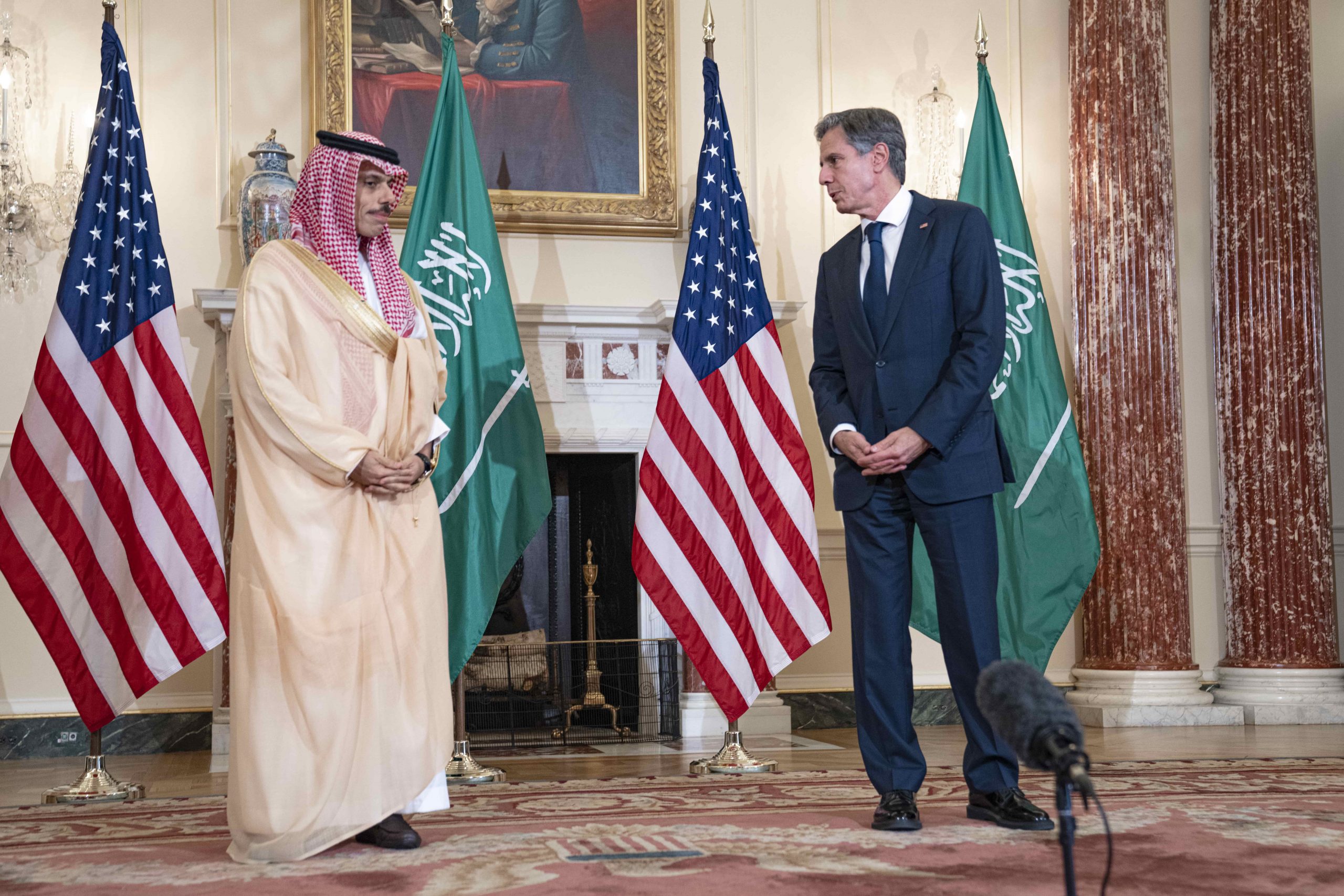In recent days, many Israeli and US media outlets have affirmed that the US is overseeing talks between Saudi Arabia and Israel with a view to including the Islamic kingdom in the Abraham Accords reached in 2020 during the last months of the former President Donald Trump’s reign.
The talks were not only a pre-emptive move to prepare for the upcoming visit by US President Joe Biden to the region, which was put off until July, but also came about due to a Saudi incentive to discuss the fate of the Tiran and Sanafir Islands: the two strategic islands that Egypt abandoned in 2015 before Riyadh announced full sovereignty over them.
The US Secretary of State, Antony Blinken, seemingly affirmed these talks by saying that Riyadh was a ‘key partner’ in expanding the Abraham Accords. True, Riyadh was a key partner in promoting the Abraham Accords since the very early moments of the agreement. That had something to do with the Bahraini rush, despite public discontent, to normalize ties with Israel.
We can deduce that if there was no Saudi blessing or even permission for the move, Bahrain would not dare to go unilaterally to Tel Aviv and sign a deal. It is easy to notice that Manama, to a large extent, has been drawing the lines of the country’s foreign policy and international relations in accordance with Saudi interests, which were later known as the Gulf Home’s interests, or the interests of the “Gulf’s most brotherly country.”
But, as for Blinken’s remarks that Saudi Arabia is doing a great job in the efforts aiming to expand the Abraham Accords, he acknowledged Riyadh’s role in “building up relationships between Israel and its neighbors,” and hinted that Saudi Arabia could ultimately be a part of the accords. Though, to question the dynamics that drove the Saudis to accept Washington’s plea and engage in such talks, despite the fact that many Saudi officials were asserting that they would not be part of a permanent peace with Israel until a just and comprehensive solution was reached to the Palestinian cause.
First, and most important, is the deteriorating health of King Salman, as Saudi Crown Prince Mohammed bin Salman (MBS) is keen to secure the long-awaited throne by neutralizing any powers lobbying against his strive in the US.
The role that was always played by the UK in the Gulf to arrange the domestic affairs of the royal families has shifted, since then, to the US. There is a predominant point of view among many Arab policy makers that it is only Israel that can guarantee the US’ endorsement for the necessitated legitimacy. Egyptian President Abdel Fattah el-Sisi tried this tactic after the 2013 coup to raise American and European support, and the advisors of the Arab dictators found it working and bearing fruit.
That was actually confirmed since the rise of MBS as a deputy crown prince in 2015, who, ever since, refused to have any distinguished ties with the Palestinians and any generous financial support was vowed or sent to the occupied territories, which came at odds with the positions of the successive Saudi governments.
What’s more, MBS spearheaded a campaign to terminate any sympathy towards Hamas in the kingdom with a view to drying up the financial sources for the Palestinian resistance group, in a bid to portray himself as the most powerful man who managed to fight “terror”. Until this very moment, Hamas says roughly 58 of its cadres, including the group’s representative to the kingdom, Mohammed Khudari, are still languishing in Saudi jails. The Americans appreciate and know that MBS was emboldened enough to hold this stance and gave no consideration to the cultural, historical, and religious limits vis-à-vis this sensitive cause.
The acceleration of the normalization could be seen within the context of a regional coalition to fight Iran, with the US’ intelligence agencies and the International Atomic Energy Agency (IAEA) emphasizing last week that Iran “has enough uranium to build an atomic bomb.”
Considering that Saudi Arabia is passing through a generational transition among the royals, the US observes that the current generation eyes Iran as the sole regional threat. However, they see Israel as a normal, non-occupied country, with which ties can be forged and maintained. A Saudi official, close to the Saudi crown prince, told the Wall Street Journal last week that they might ally with Israel to fight Iran as Hamas allied with Iran to fight Israel. This statement not only shows how the Saudis are visualizing Iran as the main and only threat, but how they weigh their huge, rich, and influential country as an entity desperate to get protection from Israel!
Furthermore, the US knows that the Saudis are seeking to shut down the Khashoggi issue once and for all. It is true that the Turkish-Saudi recent rapprochement has diminished the pressure exerted over MBS for more than three years, but, still, the Americans have yet to come up with a final decision.
It is worth mentioning that the Khashoggi case and human rights violations in the country were the main reasons that delayed Biden’s visit to Riyadh since he came to power. The Saudi crown prince was always in luck, as the Ukrainian crisis and soaring oil prices prompted the US administration to reconsider their position and plan a visit to the country. A step forward in Saudi relations with Israel will help to clean up MBS’s image in the West as a “peacemaker,” not a “brute killer.”
The ambitious venture of Neom also comes as a major dynamic. The US administration knows that Saudi Arabians were eager to succeed in this regional project that was intended to compete with the giant city of Dubai. Geography matters in this case, since the planned city is approaching the borders of Jordan, Israel, and Egypt with the Americans and Gulf tycoons keep insisting that having good relations with Israel would play a pivotal role in the project comes into being.
These are the main dynamics that could summarize the US and Saudi Arabia’s strive to expand the Abraham Accords. However, it is supposed that Saudis and Israelis will go forward to shape many economic and cultural deals, if they are not already forged, as a preface to diplomatic and political relations. The health conditions of King Salman and the future of MBS as the Saudi monarch can accelerate or delay the timing of full normalization.














